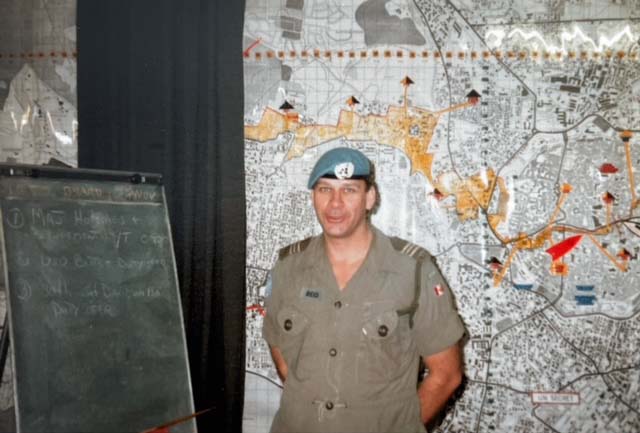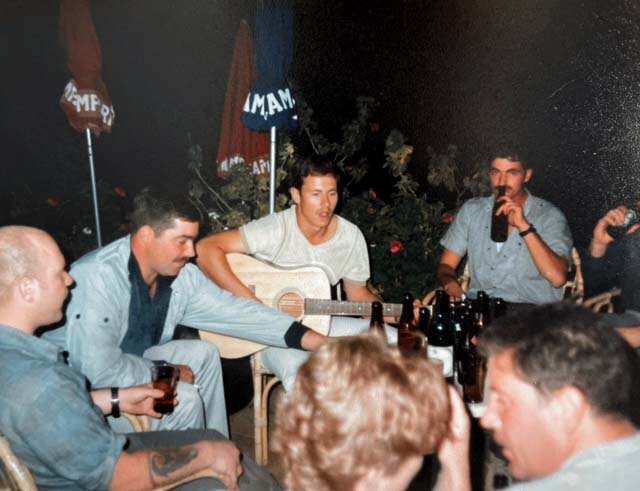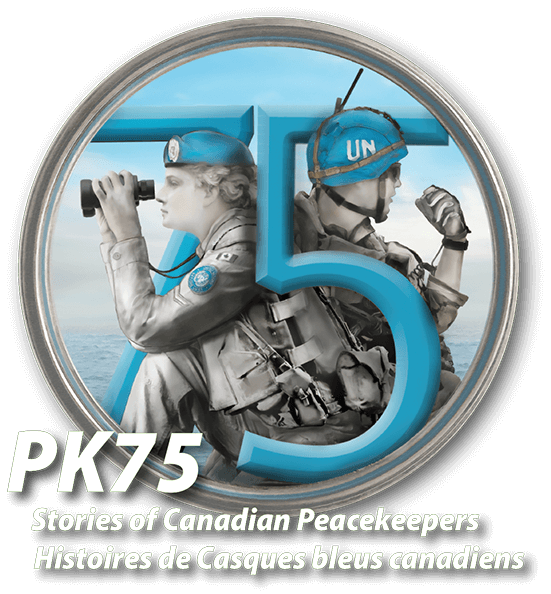

Brantford, ON, Canada
Michael Pearson
Current Location: New Maryland, NB, Canada
In October 1984, I was fortunate to be stationed in London, ON as a Platoon Commander in the 1st Battalion, The Royal Canadian Regiment. We were callsign 11, number one Platoon in the Duke of Edinburgh Company. The Battalion was heading to the Mediterranean on what was, for me, my first Peacekeeping operation, known officially as Operation SNOWGOOSE.
By then, the Canadian Army had been in on the island working as part of the United Nations Force in Cyprus (UNFICYP) for twenty years. During the preparatory training, the very experienced Warrant Officers and Sergeants in the company had given all of us young officers the distinct impression that, operationally speaking, it was a dead zone, and that nothing serious had happened for years.
On arrival, and after an easy handover with our Princess Patricia Canadian Light Infantry colleagues, we settled down to what was in fact a very quiet winter tour. We were serving a basic routine of four weeks on the Green Line then two weeks doing general duties from the headquarters, the old Ledra Palace Hotel. The life of a Platoon Commander was pretty good. I walked the line twice per day, did lots of PT, and we had a good inter-Company sports program. I even found the time to do some skiing with the Brits. That, and lots of good times in the mess as well as periodic trips and tours around the island with the whole platoon, all made for a great overall experience.
Operationally, those Non-Commissioned Officers (NCOs) who had led me to believe that nothing ever happened were exaggerating, but only a little. We had a flare up at the Beaver Lodge and the occasional report of shots fired (SHOTREP) which were usually truck backfires near the wall in Nicosia. Then one day … one of our section commanders had what could be best described as an unquenchable level of energy. He always did more than required, much to the dismay of his soldiers and the platoon HQ alike. As one of several examples, asked to repaint an OP, he ‘scrounged up’ some aluminum and redid the roof too. Turns out the aluminum was stolen from the Swedes, and one of the soldiers fell off the ladder.
The platoon was living in a line house, and we had the responsibility to man three Observation Posts (Ops), one of which was OP BASTION, situated as the name suggests, on one of the bastions built into the wall surrounding the old city of Nicosia. My Section Commander was annoyed that for a fifty metre stretch of the patrol route, OP BASTION was obscured from view by a line of small trees that had grown up undisturbed in the last fifteen years since the green line had been in place. He had repeatedly asked us to do something about it, but a wise old Company 2IC advised me to let it go. Undeterred by my direction to do nothing, the Sergeant waited until after midnight, then went out alone with a chain saw and dropped the trees. With a straight face, he reported early the next morning that the trees had fallen down! Soon thereafter, our Greek Cypriot friends let us know by screaming at the Duty Officer first, then the Battalion Commander next, that we had put their troops in great peril now that the Turks had a clean line of fire into their lines.
By noon I was standing next to a long line of clearly cut trees attempting to explain myself to the Colonel, while the section commander and a most unfortunate Platoon 2IC were on the receiving end of a heroic tirade from the RSM. No sign of the Company Commander. Four hours later, the word came down, and the Section Commander was out on the line, with his whole section of course, re-erecting each tree and tying them back to their stumps as best as could be done. It was an extraordinary spectacle. For the rest of that tour, and I am sure for many thereafter, it was customary for every line tour to make a stop just short of OP BASTION to see the famous trees. I wonder if they are still standing.
Biography
After graduating from The Royal Military College in 1983, Colonel Pearson joined The Royal Canadian Regiment, a defining moment for the rest of his career. Beside this Cyprus Peacekeeping tour in 1984–1985, he served in the Second Battalion for many years which included a Peacekeeping tour in Bosnia as well as domestically during the Oka crisis.
After Regimental service, he served as Commandant of The Infantry School, spent some time on the Army Operations staff during the war, was Base Commander at Gagetown and Defense Attaché at the Canadian Embassy at UN New York. In between these appointments, he was twice appointed Task Force Commander to Operation PROTEUS, Canada’s contribution to the United States Security Coordinator mission in Israel and Palestine, for a total of four years in Jerusalem, the last two as an Acting Brigadier General.
Colonel Pearson left the Army in 2014 after 35 years and is currently serving in Veterans Affairs Canada.

Duke’s Company Commander, Major Rick Reid.

Some soldiers from 1 Platoon, Duke’s Company on a R&R trip in Northern Cyprus.


